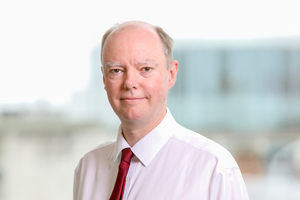Hull’s historic figures to inspire new bridge name
A judging panel have sifted around 100 essay entries to produce a shortlist of five amazing individuals who all have close links with the city.
Students from the Newland School for Girls and Archbishop Sentamu Academy have been penning essays set to the question, ‘The naming of the bridge – who inspires me and why?’
The shortlist includes World War Two veteran Thomas Ransom – a great uncle of one of the students who flew around 30 missions in a Lancaster bomber and was shot down over the Atlantic Ocean. He survived the war and died in 2017 aged 97.
Second on the list is Dr Mary Murdoch who was Hull’s first female GP, House Surgeon at the Victoria Hospital for Sick Children in Park Street and founder of the Hull Women’s Suffrage Society.
The remaining three names include ‘headscarf revolutionary’ Lillian Bilocca, philanthropist and abolitionist William Wilberforce and Julia Lee – the first woman to officiate men’s rugby league games in the United Kingdom.
Highways England senior project manager James Leeming said:
I can speak for the entire panel when I say we were really impressed by the calibre of the entries and it was a real challenge to narrow the list down to five.
Now we are asking the public to come along and cast their vote on who they think should inspire the name of the new bridge which is going to significantly improve connectivity in the centre of Hull.
When we have the results of the online and Minster votes, the judging panel will work with the winner and their school to finalise a name for the bridge based on the winning theme.
Five boxes will be placed at Hull Minster where members of the public can go along, read the essays and decide who to vote for by placing a token in their chosen box.
An online poll will also run on the scheme website. The vote will open on Monday 9 March for two weeks.
The judging panel consists of Emma Hardy MP, Katy Duke (CEO Deep), Cllr Daren Hale (Deputy Leader of the Labour Group), Karen Oliver-Spry (Humber LEP Investment Programme Manager) and key members of the internal Highways England Project Team.
The bridge is due to open to the public next spring and the new name and winner will be announced at a ceremony when it opens to the public.
It is being part funded with a £4 million contribution from the Humber Local Enterprise Partnership’s local growth fund programme, secured through its growth deals with Government and part of the Government’s commitment to the Northern Powerhouse.
Details of the online poll will be announced shortly and will run on our A63 Castle Street – Princes Quay Bridge and Roger Millward Way page. Updates will be provided via Twitter using #a63hullpqbridge
General enquiries
Members of the public should contact the Highways England customer contact centre on 0300 123 5000.
Media enquiries
Journalists should contact the Highways England press office on 0844 693 1448 and use the menu to speak to the most appropriate press officer.

